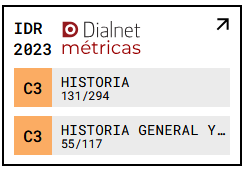Amartya sen’s vision on the components of human well-being in society
DOI:
https://doi.org/10.18172/brocar.1574Keywords:
Capabilities, agency, democracy, justice, marketAbstract
Amartya K. Sen’s vision is that it is the extent to which the various individual capabilities are achieved, and the actual possibility to achieve them, what defines not only each person’s activity and situation, but also the level of development of the society that she is a member of. In other words, a person is ‘multimotivated’ by her various goals in life, and not only by utilitarian happiness. This vision has far-reaching consequences in relation first with democracy as the best political principle to guarantee an ongoing informed public debate and the expansion of individual capabilities; second, with the variability in the results of the market as an allocation mechanism when considering capabilities, and third, with the use of individual capabilities as a technique of comparative justice that could become a part of a comprehensive theory of justice.Downloads
References
CEJUDO CÓRDOBA, R., “Capacidades y Libertad. Una aproximación a la teoría de Amartya Sen”, Revista Internacional de Sociología, Vol. LXV, nº 47, Mayo-Agosto, 2007, pp. 9-22. DOI: https://doi.org/10.3989/ris.2007.i47.50
FREIJEIRO VARELA, M., “¿Hacia dónde va la ciudadanía social?”, Revista Andamios, Vol. 5, nº 9, Diciembre 2008, pp. 157-181. DOI: https://doi.org/10.29092/uacm.v5i9.188
KUKLYS, W., Amartya Sen’s Capability Approach. Theoretical Insights and Empirical Application, Springer-Verlag, Berlin, Heidelberg, 2005.
LEACH, M. et al., Environmental Entitlements: a framework for understanding the institutional dynamics of environmental change, Discussion Paper 359, Institute of Development Studies, Brighton, 1997.
PEDRAJAS HERRERO, M., El desarrollo humano en la economía ética de Amartya Sen, Servei de Publicacions, Universitat de Valencia, 2006.
RAWLS J., A Theory of Justice, The Belknap Press of Harvard University Press, Cambridge, 2005.
SEN, A. K., Poverty and Famines: An Essay on Entitlement and Deprivation, Clarendon Press, Oxford, 1981.
— On Ethics & Economics, Billing & Sons Ltd., Worcester, 1984.
— Utilitarianism and beyond, Cambridge University Press, Cambridge, 1988.
— Gender and cooperative conflicts, en Persistent Inequalities: Women and World Development, Tinker, I. (Editor), Oxford University Press, New York, 1990.
— Inequality Reexamined, Harvard University Press, Cambridge, 1995.
— Bienestar, Justicia y Mercado, Ed. Paidós, I.C.E. de la Universidad Autónoma de Barcelona, Barcelona-Buenos Aires-México, 1997
— Resources, values and development, First Harvard University Press, Cambridge, Massachusetts, 1997.
— Development as Freedom, First Anchor Books, New York, 2000.
— La démocratie des autres, Éditions Payot & Rivages, Paris, 2005.
— The Idea of Justice, The Belknap Press of Harvard University Press, Cambridge, 2009.
Downloads
Published
How to Cite
Issue
Section
License
The authors retain copyright of articles and authorize CIF the first publication. They are free to share and redistribute the article without obtaining permission from the publisher as long as they give appropriate credit to the editor and the journal.
Self-archiving is allowed too. In fact, it is recommendable to deposit a PDF version of the paper in academic and/or institutional repositories.
It is recommended to include the DOI number.
This journal is licensed under a Creative Commons Attribution 4.0 International License











